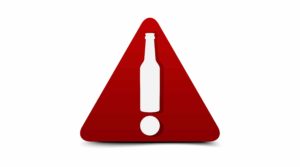EU legislation to review alcohol taxation

The Plan does not intend to attack alcohol consumption per se but rather its ‘overuse’, according to EU Commission Vice President Margaritis Schinas.
It also intends to have an ingredients listing and a nutritional declaration on alcoholic beverage labels before the end of 2022 before having health warnings on labels before the end 2023.
Reducing alcohol-related harm is a major public health concern in the EU. According to the World Health Organisation statistics, cancer was the leading cause of alcohol-attributable deaths across Europe (including the UK, Norway and Switzerland) in 2016 with a share of 29%, followed by liver cirrhosis (20%), cardiovascular diseases (19%) and alcohol-related injuries (18%).
The Europe’s Beating Cancer Plan aims to reduce smoking, alcohol consumption and pollution and promote a healthier lifestyle.
The target of the Commission’s initiatives in the area of alcohol is to address alcohol abuse rather than the moderate use of alcohol.
As a result, the Commission is to increase support for Member States and stakeholders to implement best practices and other activities aimed at reducing harmful alcohol consumption in line with the targets of the UN Sustainable Development Goals.
According to a communication from the Commission to the European Parliament & the Council, “This includes a target to achieve a relative reduction of at least 10% in the harmful use of alcohol by 2025. In addition, the Commission will review EU legislation on the taxation of alcohol and on cross-border purchases of alcohol by private individuals, ensuring that it remains fit for purpose to balance the objectives of public revenue and health protection.
“To reduce the exposure of young people to alcohol marketing, the Commission will closely monitor the implementation of the Audiovisual Media Service Directive provisions on commercial communications for alcoholic beverages including on online video-sharing platforms. This will involve work with Member States and the European Regulators Group for Audiovisual Media Services and stakeholders to encourage self and co-regulatory initiatives.
“Furthermore, the Commission will review its promotion policy on alcoholic beverages and in addition propose a mandatory indication of the list of ingredients and the nutrition declaration on alcoholic beverage labels before the end of 2022 and of health warnings on labels before the end 2023. Support will also be provided to Member States to implement evidence-based brief interventions on alcohol in primary healthcare, the workplace and social services.”
The €4 billion Plan was launched by EU Health Commissioner Stella Kyriakides.
The Plan does not intend to attack alcohol consumption per se but rather its ‘overuse’, according to EU Commission Vice President Margaritis Schinas who emphasised, “Certainly the European Union will not ban wine and we will not label wine as toxic – this will not happen.”
Margaritis Schinas explained that the Plan was about the “abuse of alcohol as defined by science, not by Brussels.”
Instead, Stella Kyriakides stated that, “What we will be doing is increasing awareness and looking at issues to do with alcohol affordability and availability”.








